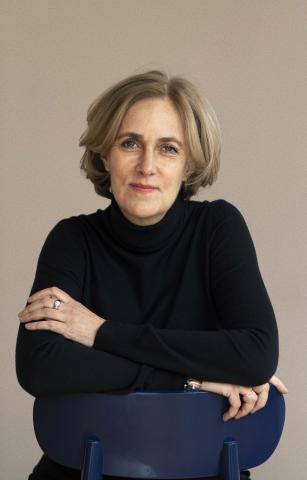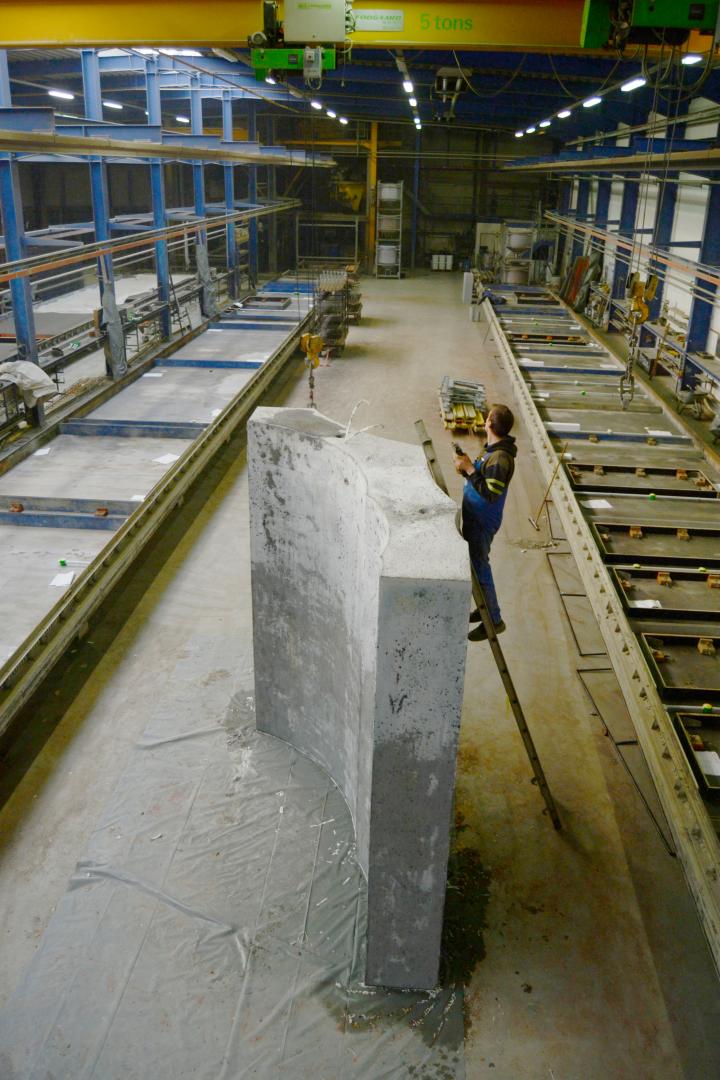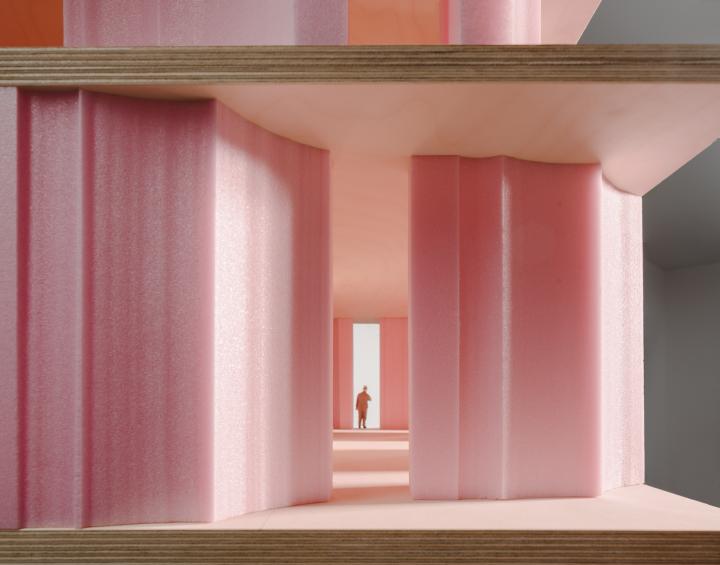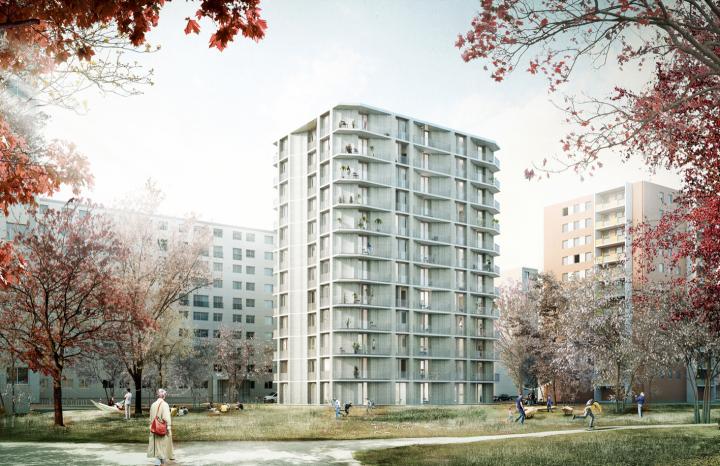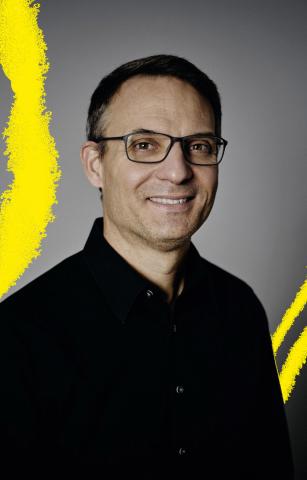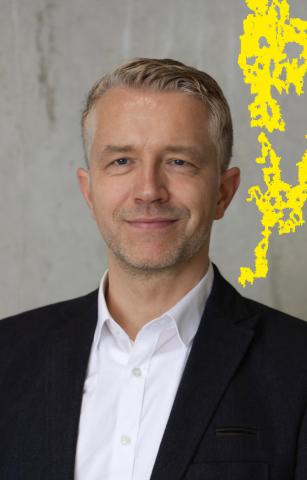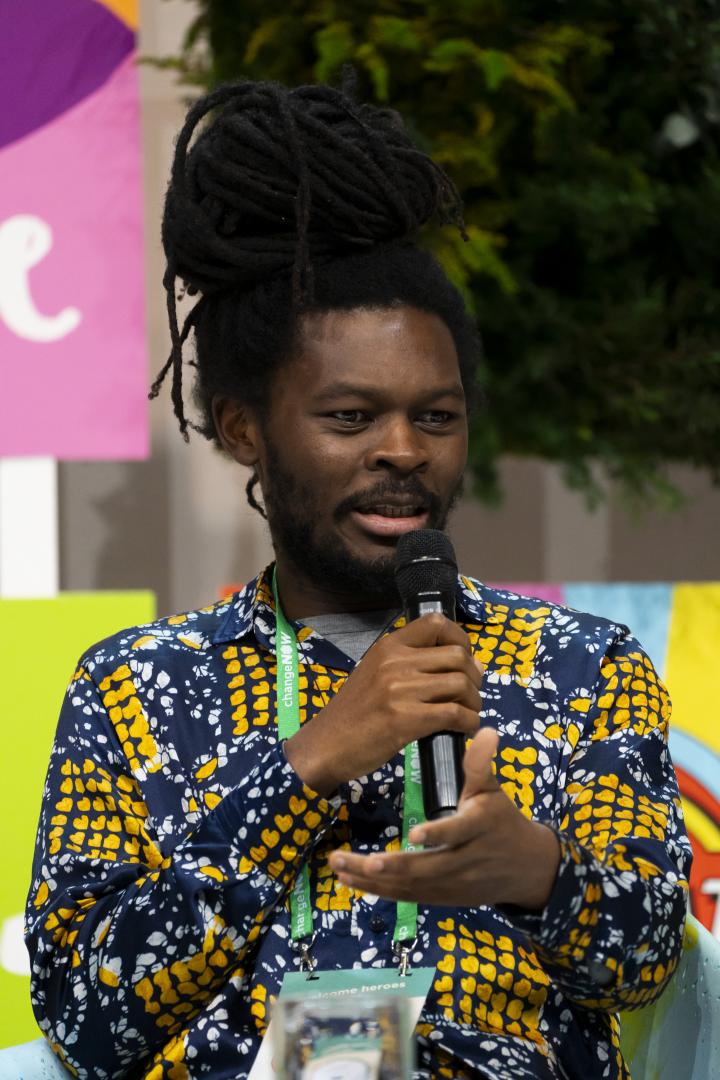Speaker
Regine Leibinger
Infra-Lightweight Concrete
Infra-Lightweight Concrete offers significant spatial potential as a building material due to its large wall thickness, along with its promising characteristics in CO₂ reduction and recyclability. Barkow Leibinger, in collaboration with Schlaich Bergermann & Partners, explored this potential over many years through various designs, though these remained unrealized.
The Smart Material House for the 2010 International Building Exhibition in Hamburg was a prototype for flexible live-work housing. It used self-insulating Infra-Lightweight Concrete with recycled foamed glass—one-third the weight of standard concrete. Combined with wood, it achieved a near-zero carbon effect. Sculptural concrete elements were structurally self-supporting, shaping interiors and loggias.
A second project, the 2013 Urban Living competition, proposed point towers on Karl-Marx-Allee. It reinterpreted Plattenbau with precast Infra-Lightweight Concrete panels, embedding steel rods for vertical support. Though non-load-bearing, the concrete improved insulation, fire protection, and reinforced the steel. Using a single panel type increased speed and reduced costs.
A variation for WBM in Berlin featured a 36-meter, twelve-story tower with 70 apartments. Prefabricated 60 cm walls used Infra-Lightweight Concrete with expanded clay aggregate.
CV
Since 1993 Regine Leibinger has been leading the architectural practice Barkow Leibinger in Berlin together with Frank Barkow. The spectrum of their work ranges from master planning, high-rises, office and industrial buildings to residential buildings, installations and prototypical exhibition pavilions. Regine Leibinger was Professor of Building Construction and Design at the TU Berlin, Visiting Professor at Princeton University and Cornell University, and since 2022, she regularly teaches as Design Critic in Architecture at Harvard University, Graduate School of Design. She is a member of the Architecture Section at the Akademie der Künste in Berlin and a member of the Dean's Leadership Council at Harvard GSD. In 2022, she founded the non-profit organization "Experimental", which supports projects that explore new territories in architecture with the goal of changing how and with what we build.
